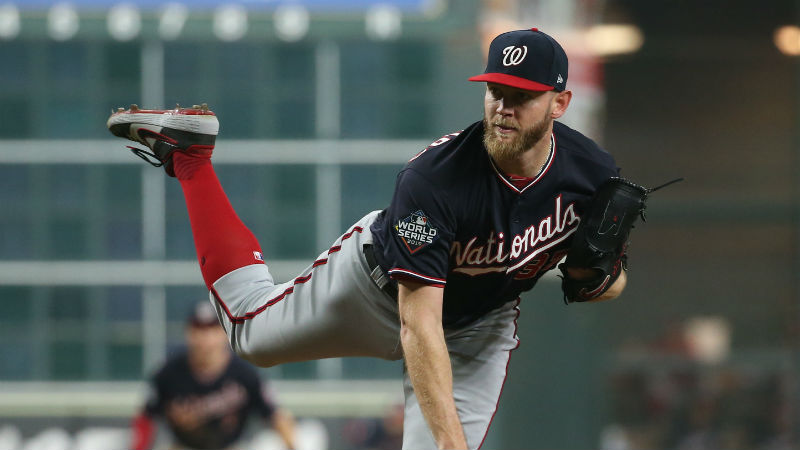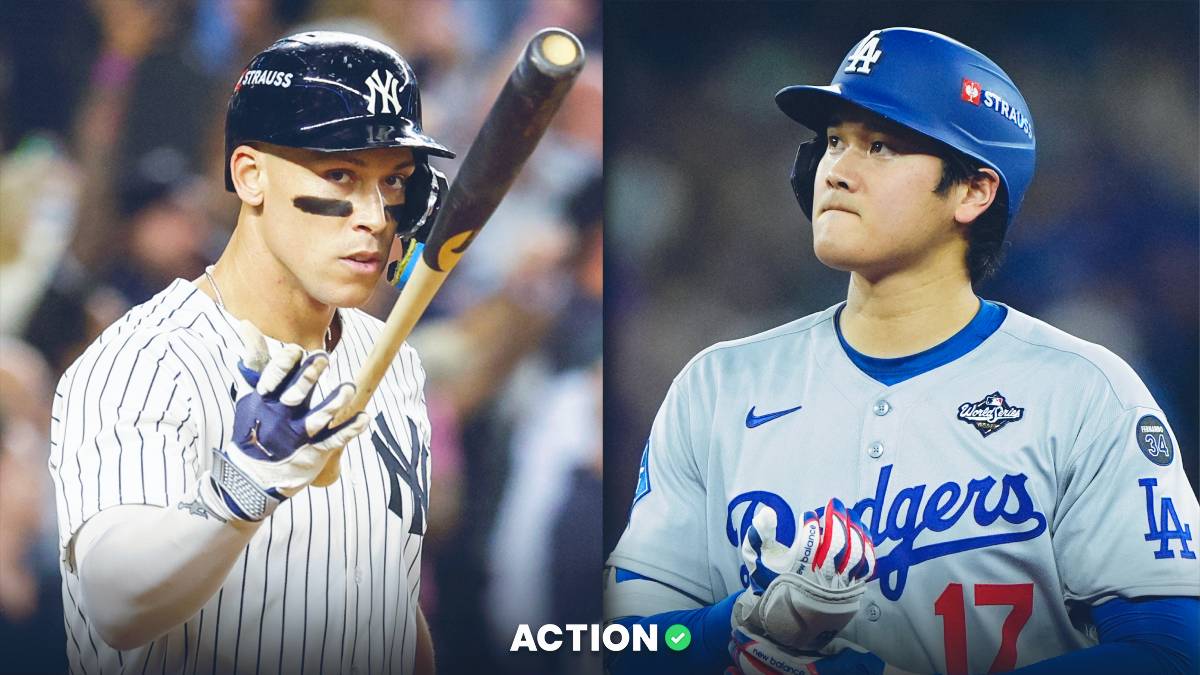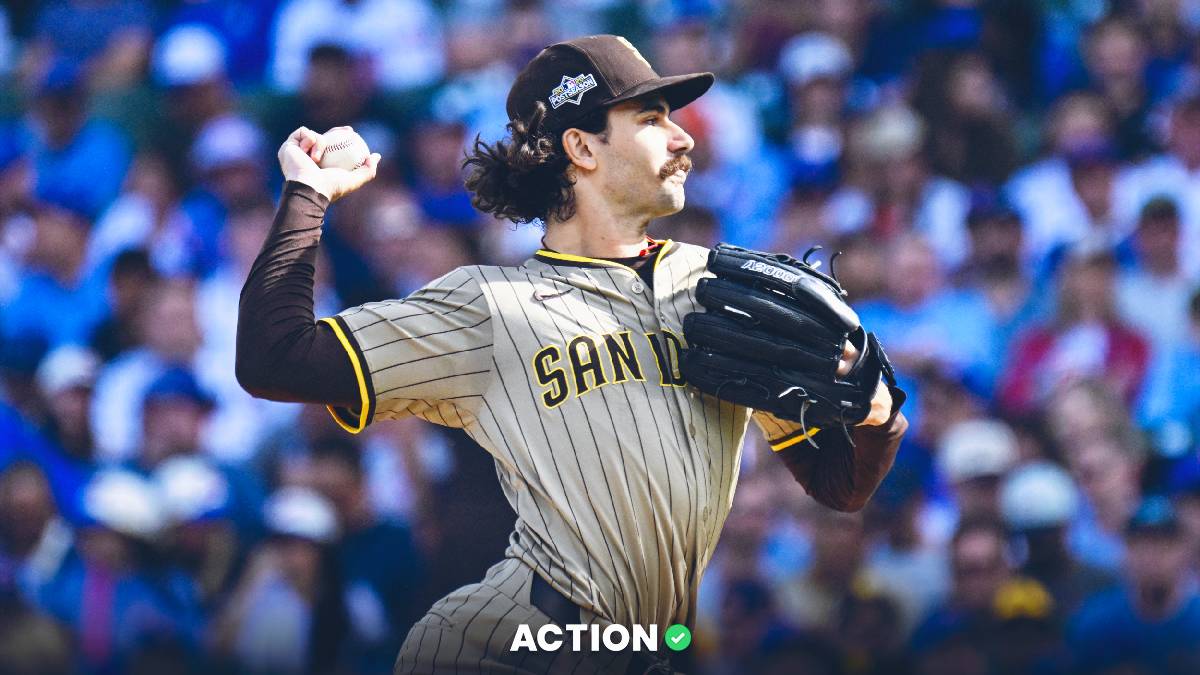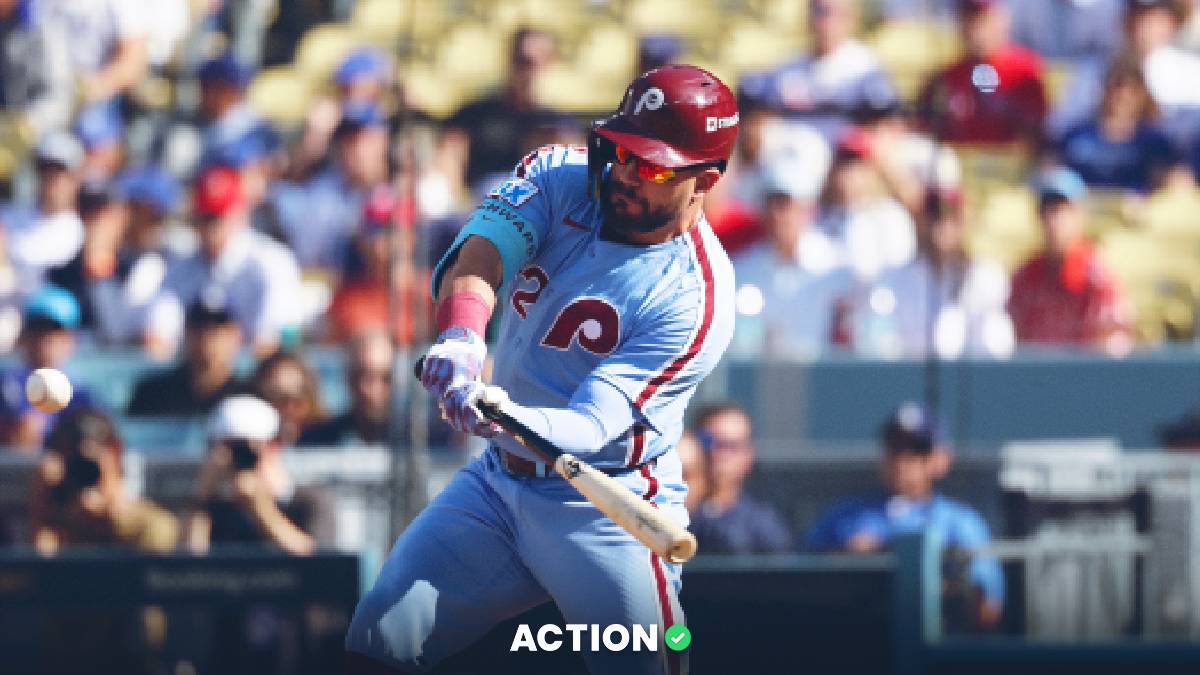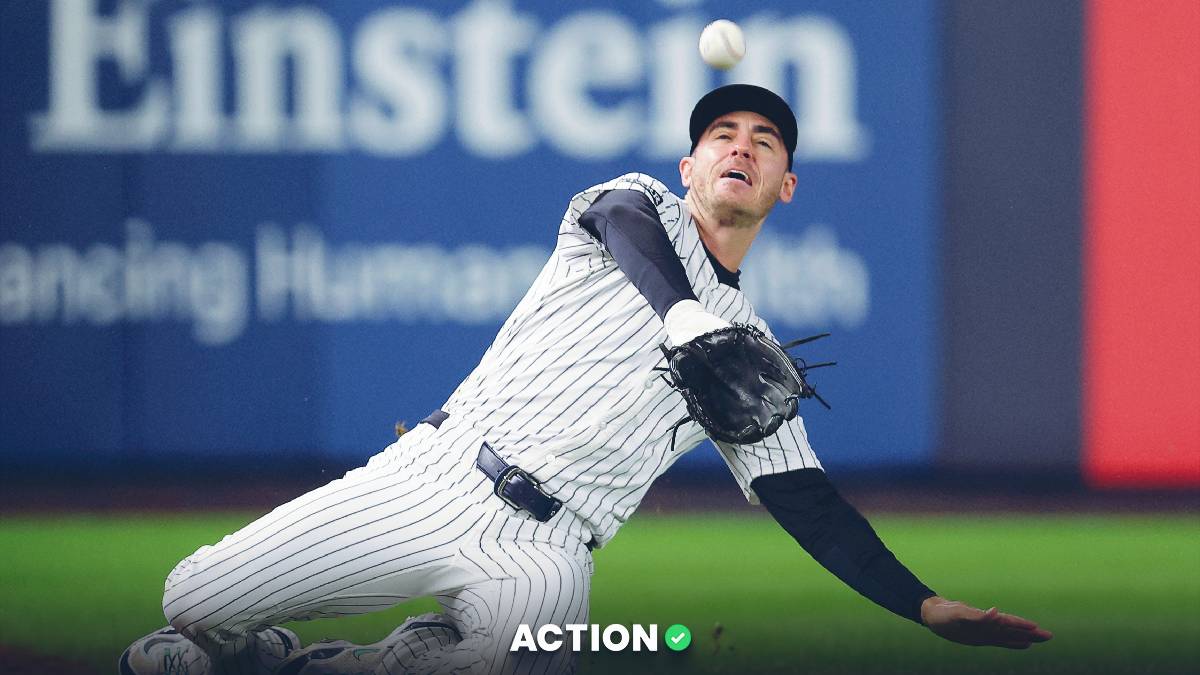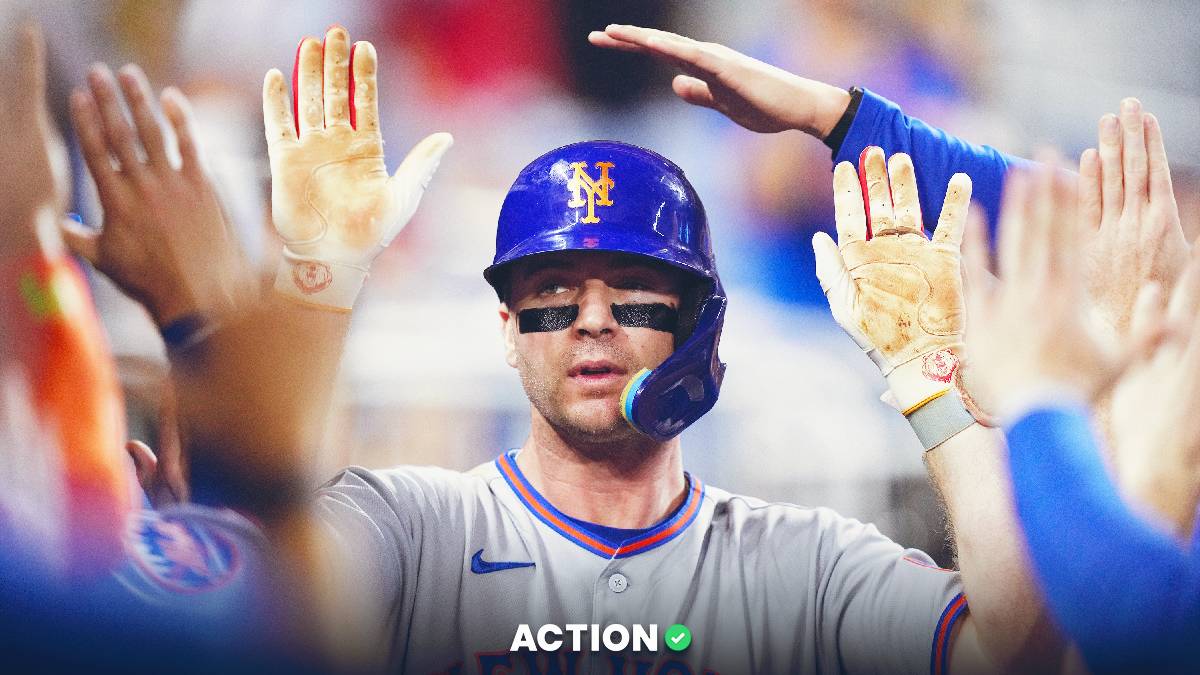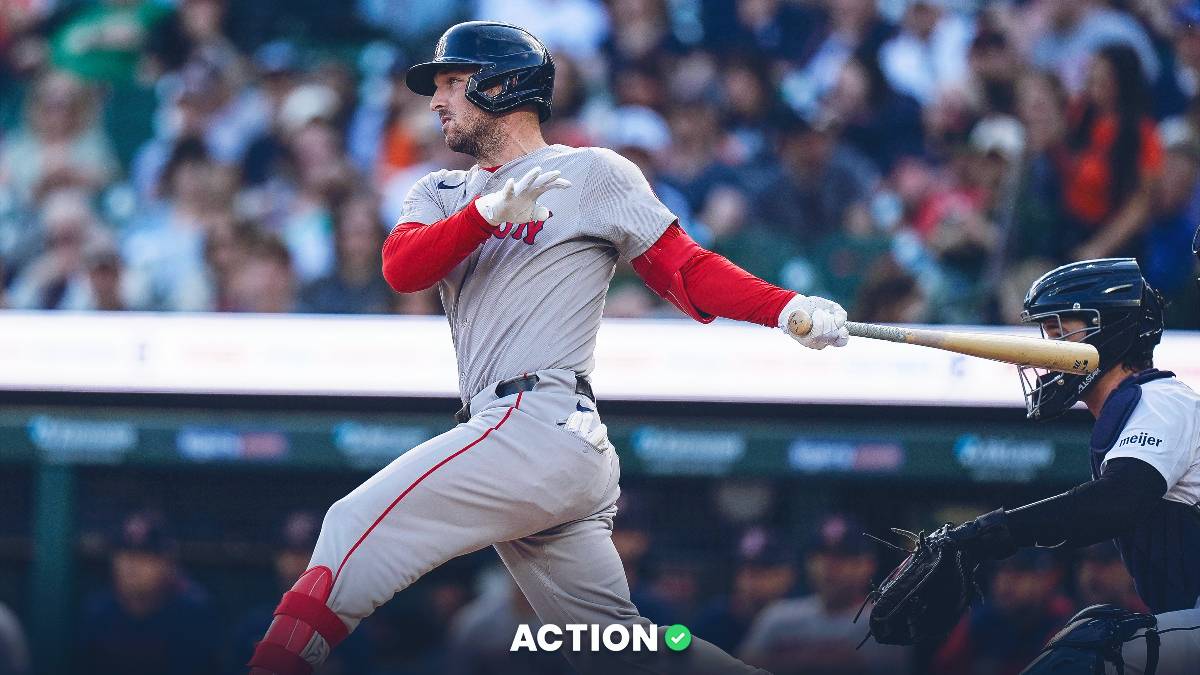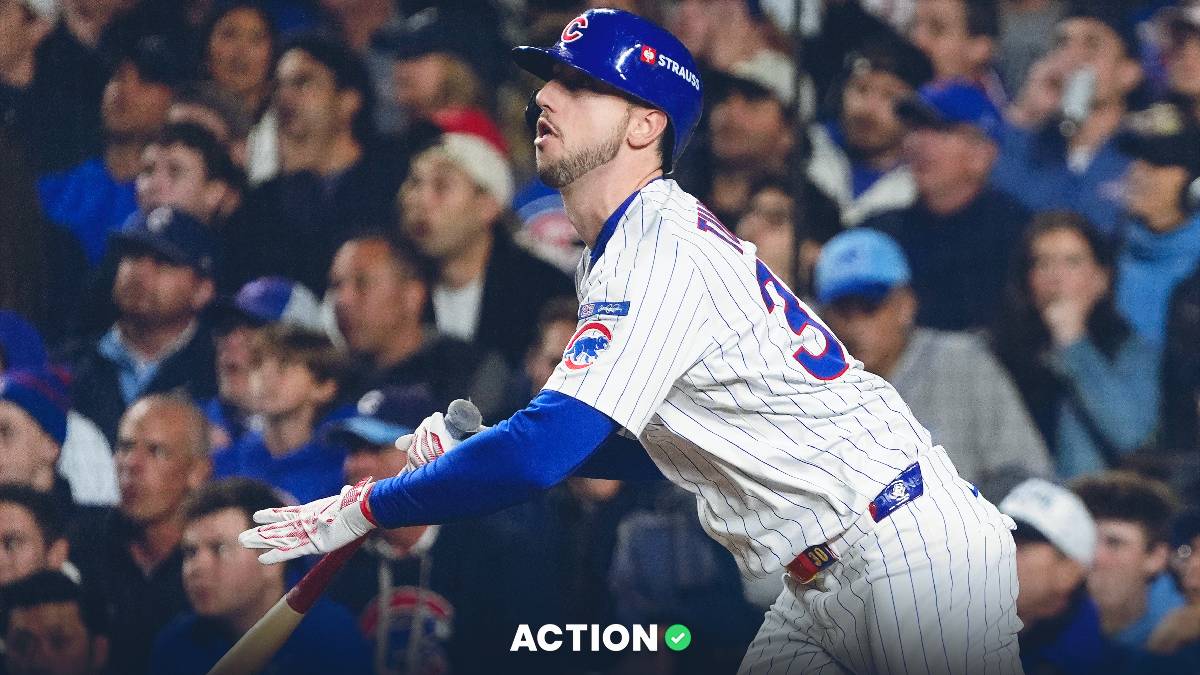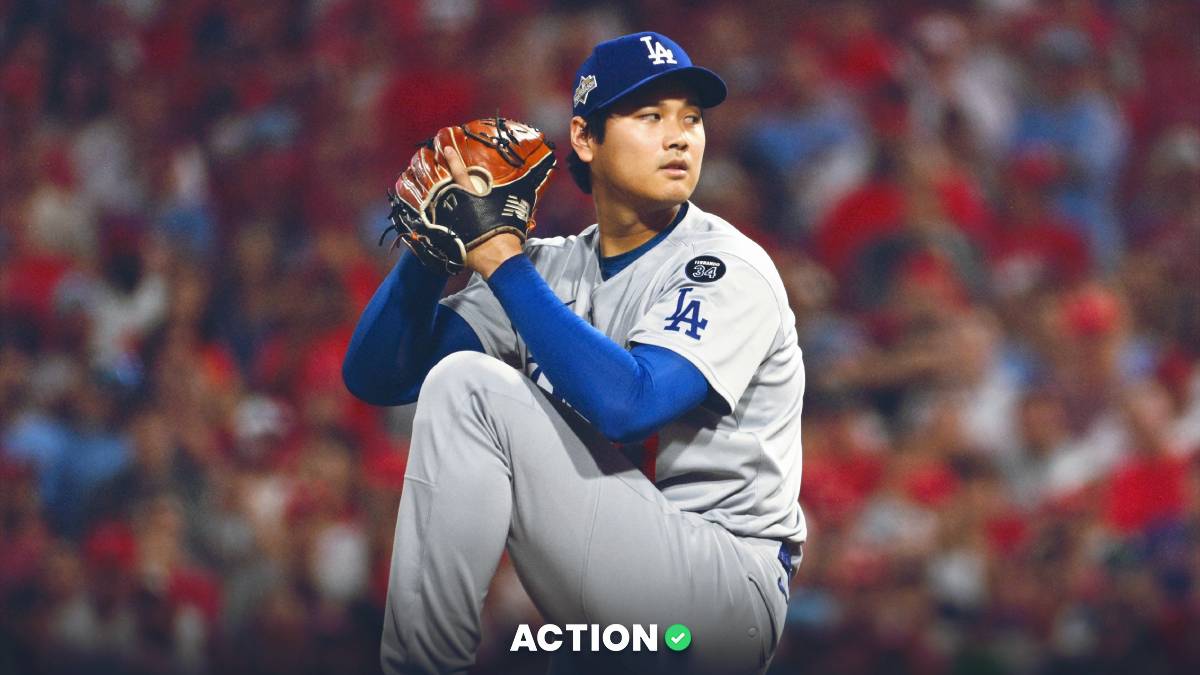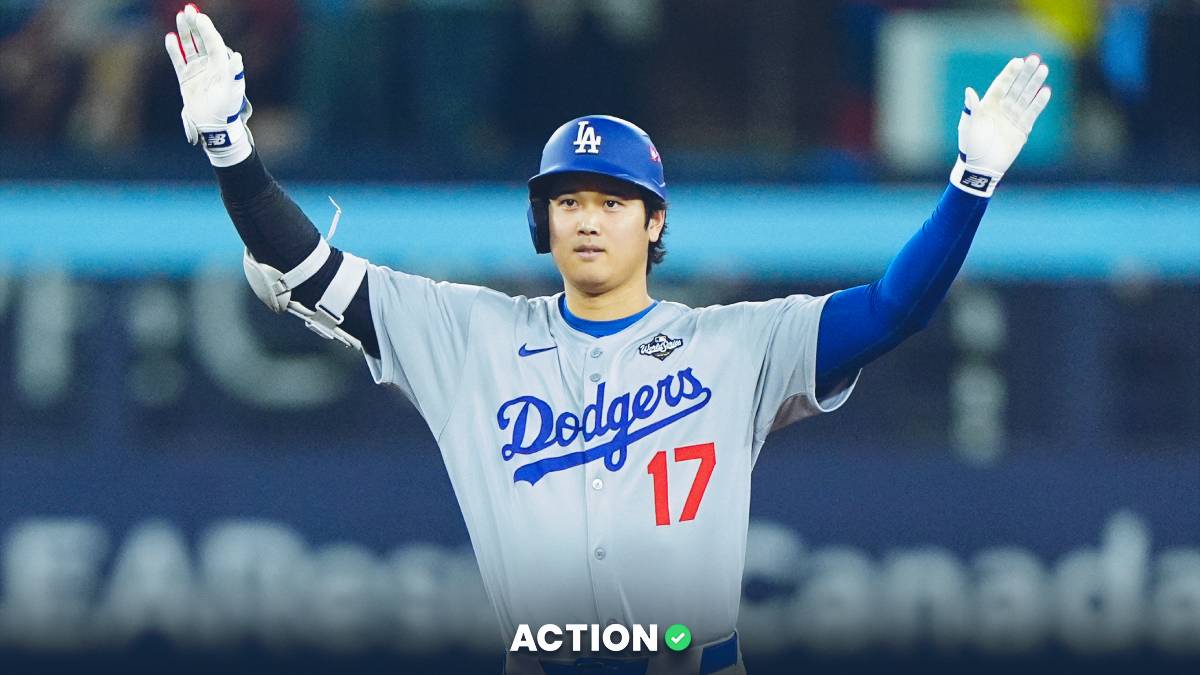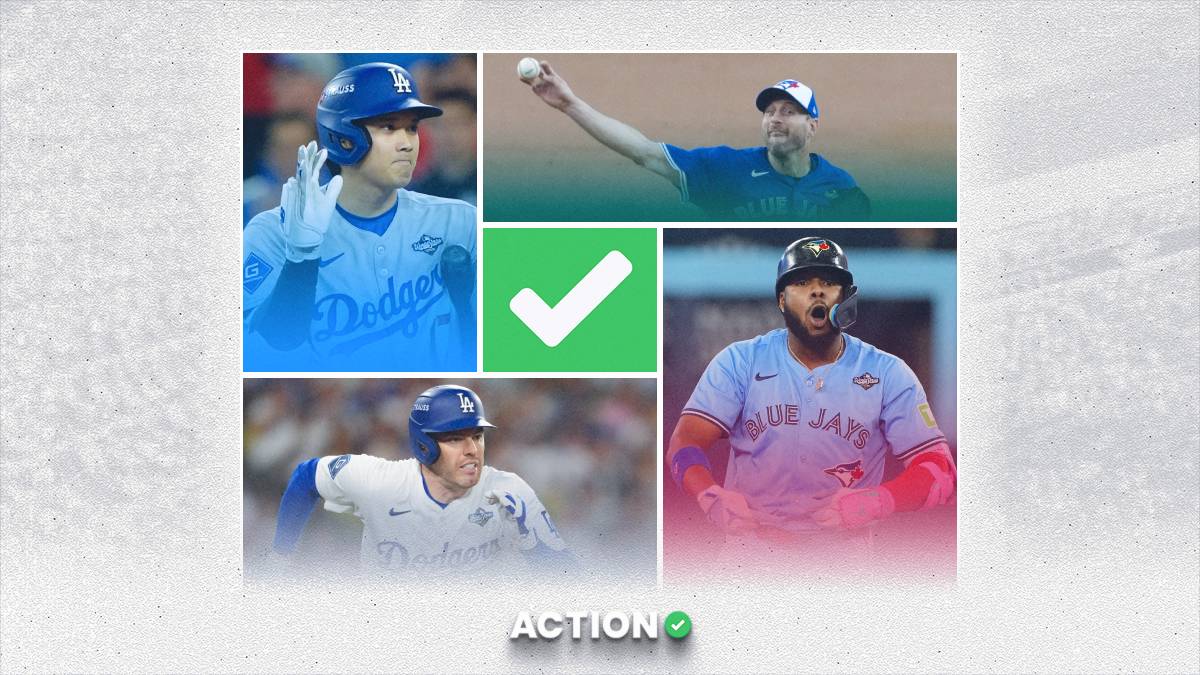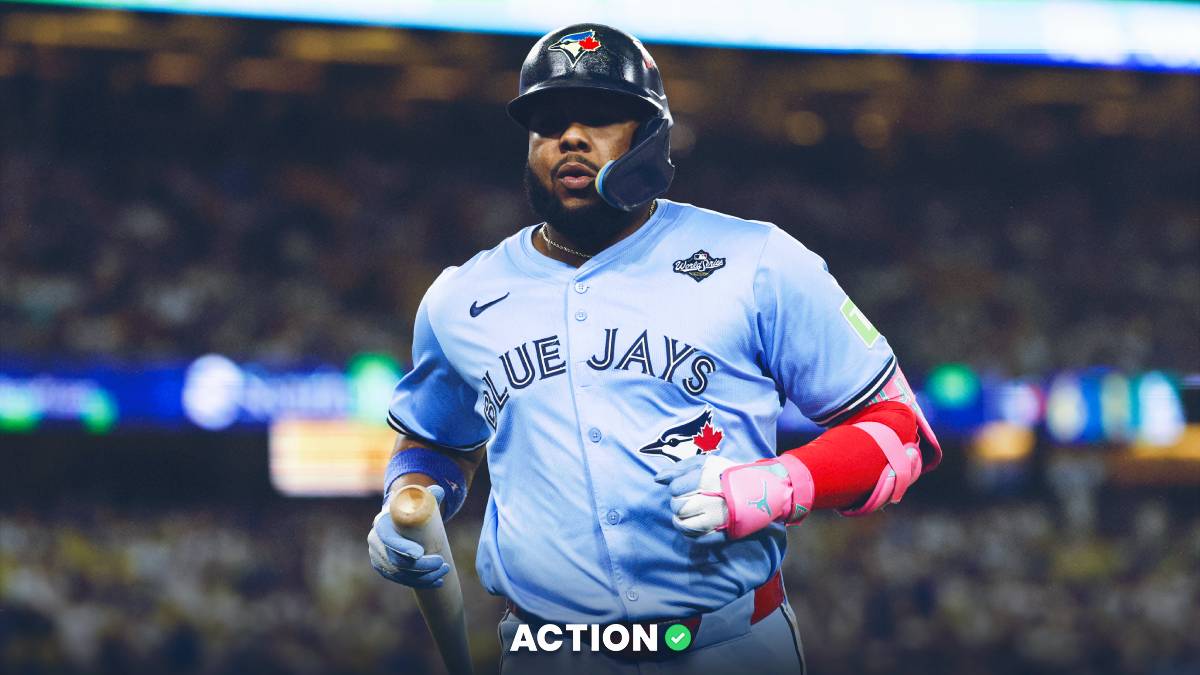- Who should you be betting on in Tuesday's World Series Game 6 between the Washington Nationals and Houston Astros?
- We breakdown the updated betting odds and give our favorite picks as Stephen Strasburg takes on Justin Verlander in Houston.
World Series Game 6 Betting Odds, Picks & Predictions: Astros vs. Nationals
Probable starters: Stephen Strasburg (18-6, 3.32 ERA) vs. Justin Verlander (21-6, 2.58 ERA)
- Nationals odds: +155
- Astros odds: -185
- Over/Under: 7.5
- First pitch: 8:07 p.m. ET on FOX
Odds as of Thursday morning and via PointsBet, where Action Network users get an exclusive 200% deposit match (deposit $50, bet with $150).
Game 6 of the World Series creates a unique learning experience that only exists in playoff series, with the opportunity to assess how the betting market responds to an almost exact rematch.
The closing odds from Game 2 represent a perfect point of comparison to see how the market has adjusted since last Wednesday when the Nats scored 12 runs off Justin Verlander and the Astros bullpen.
Despite scoring one run in three consecutive games in Washington, oddsmakers have tightened the Game 6 line compared to the closing line from Game 2, which had the Astros as a -179 (implied 64.2%) favorite and the Nats listed as a +164 (implied 37.9%) underdog.
At listed odds of +155 for Game 6, oddsmakers suggest that Washington's chances are 1.3% better they were for Game 2. And while there is still some line value on the Nats, there is certainly much less value in playing their moneyline now than there was earlier in this World Series.
Let's see if we can find a derivative way to bet on the Nationals that still represents actionable value, as Stephen Strasburg looks to pull another upset to force a Game 7 in Houston.
The Starters
Strasburg added another quality start (6 IP, 2 R, 1 BB, 7 K) and win to his postseason record in Game 2, bringing his career playoff record to 5-2 with a 1.34 ERA and an impressive 64/6 strikeout to walk ratio in 47 innings.
He tossed 112-pitches over six innings in that Game 2 outing, recording 19 called strikes and 11 whiffs — five with his changeup, two with his curveball, and two more with either fastball.
Strasburg recovered from an early mistake on a changeup to Alex Bregman:
There might not be a better example of missed location for Strasburg than that changeup to Bregman. #WorldSeriespic.twitter.com/EuQdFQJSiM
— Lance Brozdowski (@LanceBroz) October 24, 2019
As I demonstrated before the deciding Game 5 of the NLDS against the Dodgers, Strasburg's nasty changeup has led to reverse splits in 2019 and an even wOBA split for his career, despite a velocity decline of four mph since his debut.
As you can see in the heat map in the GIF Above, Strasburg uses the changeup to induce swings just below the strike zone. It looks like a fastball on the corner until it does its bugs bunny action and falls off of a table:
Stephen Strasburg, Disgusting 87mph Changeup (spin axis/release). 🤮 pic.twitter.com/hYoMqjUn1I
— Rob Friedman (@PitchingNinja) October 24, 2019
But I have also discussed Strasburg's increased curveball usage and dominance, before Game 2 of the NLDS.
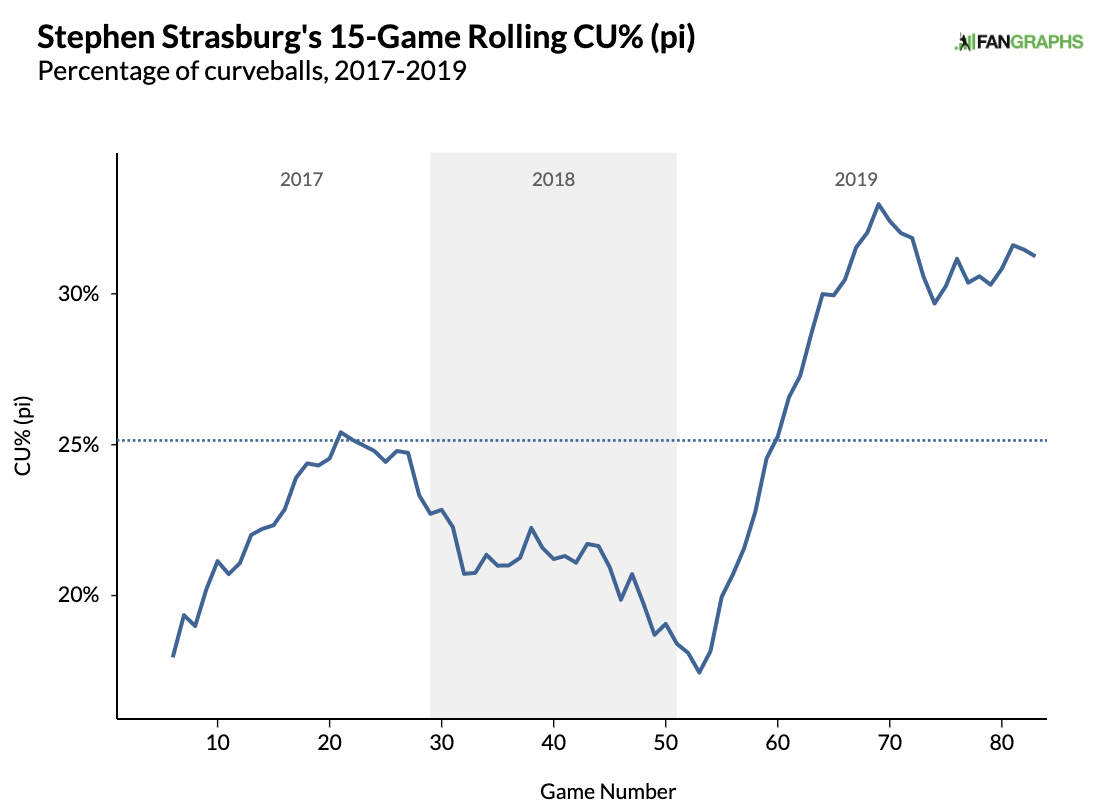
On the season, Strasburg only finished behind Charlie Morton in total pitch value with his curveball; and ranked fourth on a per pitch basis.
He has generated 49 of his 66 (74.2%) swinging strikes in these playoffs with the changeup (29) or slider (20), in addition to 11 with his four-seam fastball, and six with his two-seamer — but the changeup induces whiffs more frequently (26% in October) than his other offerings:
Stephen Strasburg fastball, curveball, changeup overlay. ⚾️🔥👑 #WorldSeriespic.twitter.com/HSLAvGzw0J
— Lance Brozdowski (@LanceBroz) October 24, 2019
Justin Verlander set one good and one lousy postseason record in Game 2. He first became the all-time leader in postseason strikeouts, but also ended up as the only pitcher to lose his first five World Series decisions.
He generated an elite 21 swinging strikes in that start — including nine with his fastball and seven with his slider, the bread and butter combination that I have highlighted multiple times this postseason, including in my Game 5 ALCS preview.
Justin Verlander, Filthy 86mph Slider…and Sword. ⚔️ pic.twitter.com/CW4M3oI3XP
— Rob Friedman (@PitchingNinja) October 24, 2019
I have also noted the following things about Verlander during his time with the Astros, all of which bears repeating:
- First amongst starters with a K/BB rate of over 7.5.
- He has increased his strikeout rate, throwing fewer fastballs (10%) in exchange for more curveballs and sliders over the past two seasons.
- Increased his swinging-strike rate, from 10.7% in 2017 to 14.5% in 2018, and 16.1% in 2019 – breaking his career-high two years running.
- Experienced a hard contact/home run issue since 2016, due to a 38% ground-ball rate and the fact that his HR/9 and HR/FB rates have regressed towards league average.
The Astros took a future Hall-of-Fame pitcher, and helped him improve in his late thirties:
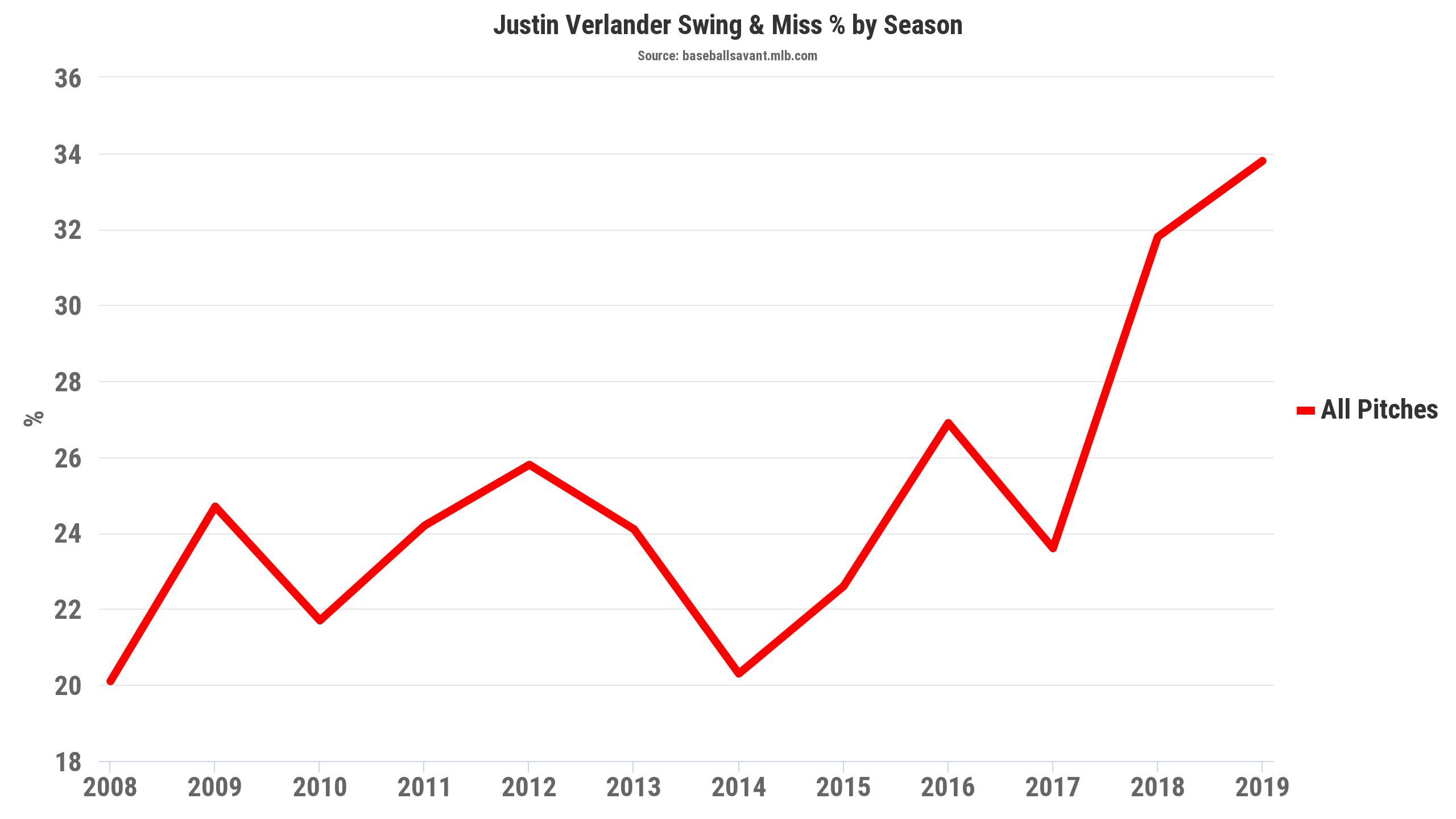
But he has looked slightly off-kilter since pitching on three day's rest for the first time in his career and needs to snap his World Series losing streak
If you want additional information on either of these pitchers, consider reading "The Starters" section in my World Series Game 2 Preview.
The Bullpens
On the season, the Astros bullpen ranks 11th in FIP, first in xFIP, and first in K-BB%. By the same metrics, the Nationals rank 26th, 29th, and 23rd.
Gerrit Cole completed seven innings for his fifth consecutive postseason start, and the Astros only needed to use Joe Smith (16 pitches) and Ryan Pressly (13) pitches) behind him on Sunday — giving most of their relievers two full days of rest heading into Game 6.
Will Harris, who I featured before Game 3, has been the Astros most effective reliever this postseason and should be involved in Game 6.
Neither bullpen has performed particularly well overall this postseason:
Things are looking especially treacherous for the Nationals behind Stephen Strasburg.
After Scherzer was scratched from Game 5, they burned out Daniel Hudson (36 pitches) while also using Wander Suero for the third consecutive day, and Tanner Rainey for the fourth time in the series.
Sean Doolittle, who has only thrown 27 pitches between two appearances in Games 1 and 5, appears to be their most well-rested option — though Javy Guerra should also factor in.
Additionally, the Nats could turn to Anibal Sanchez on short rest, or use either or both Patrick Corbin and Max Scherzer out of the bullpen in Games 6 and Game 7, if Scherzer is feeling up to the task on Tuesday.
Anything goes in a potential elimination game, and I would expect Strasburg's max pitch count to be in the 125-130 range.
Who pitches next will be dictated by the score and game situation, but Hudson and Rainey are beginning to fade.
Projected Lineups
Data via FantasyLabs
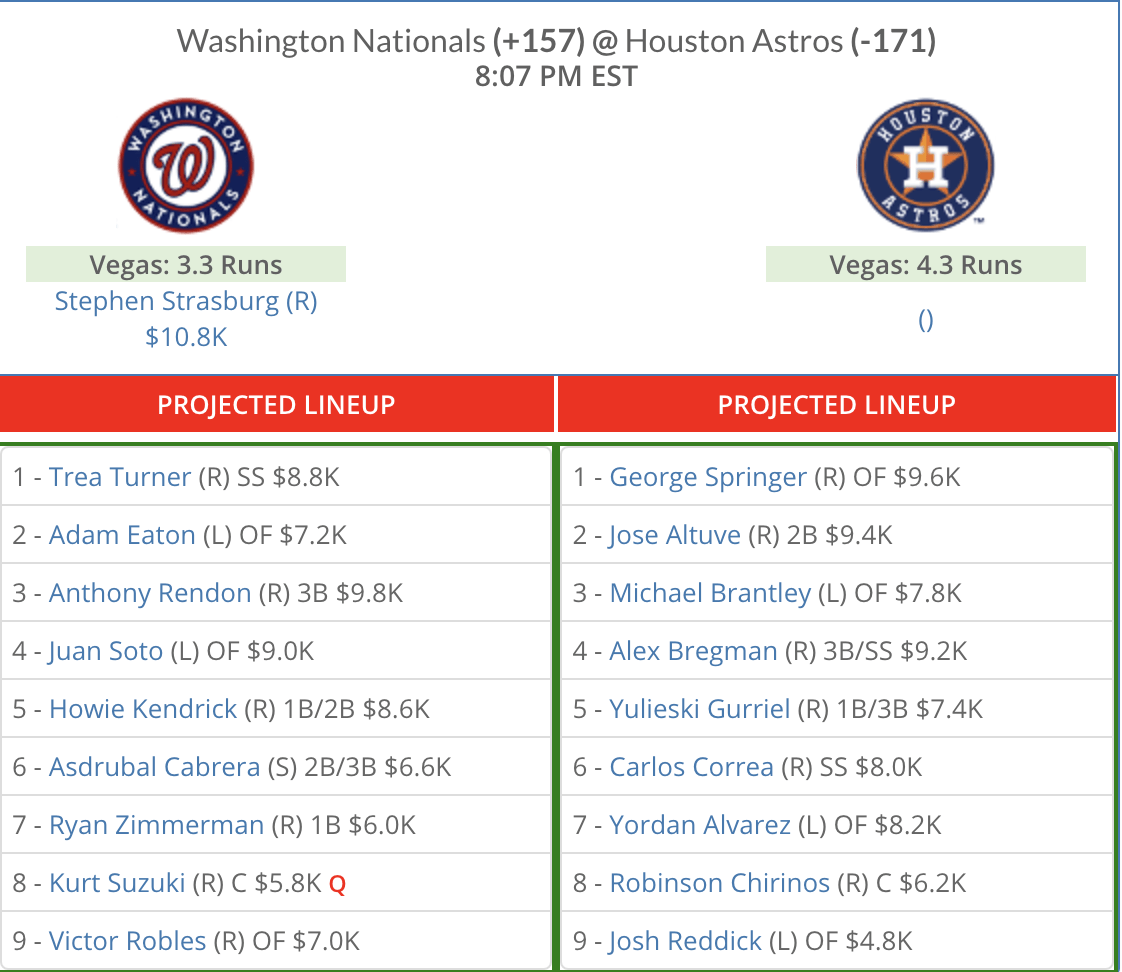
On the Nationals roster, Asdrubal Cabrera has the most experience against Verlander, going 21-for-76 with six doubles, three homers, and eight walks.
But he has also struck out 30 times in those 84 regular-season plate appearances (35.7%), which is probably more telling. He also struck out all three times that he faced Verlander in Game 2.
Kurt Suzuki is 14-for-42 (.333 average) lifetime against Verlander, and also singled and homered off of the future Hall-of-Famer in Game 2. However, he has missed the past two games with a hip-flexor injury.
Umpire and Weather Report
Data via Sports Insights.
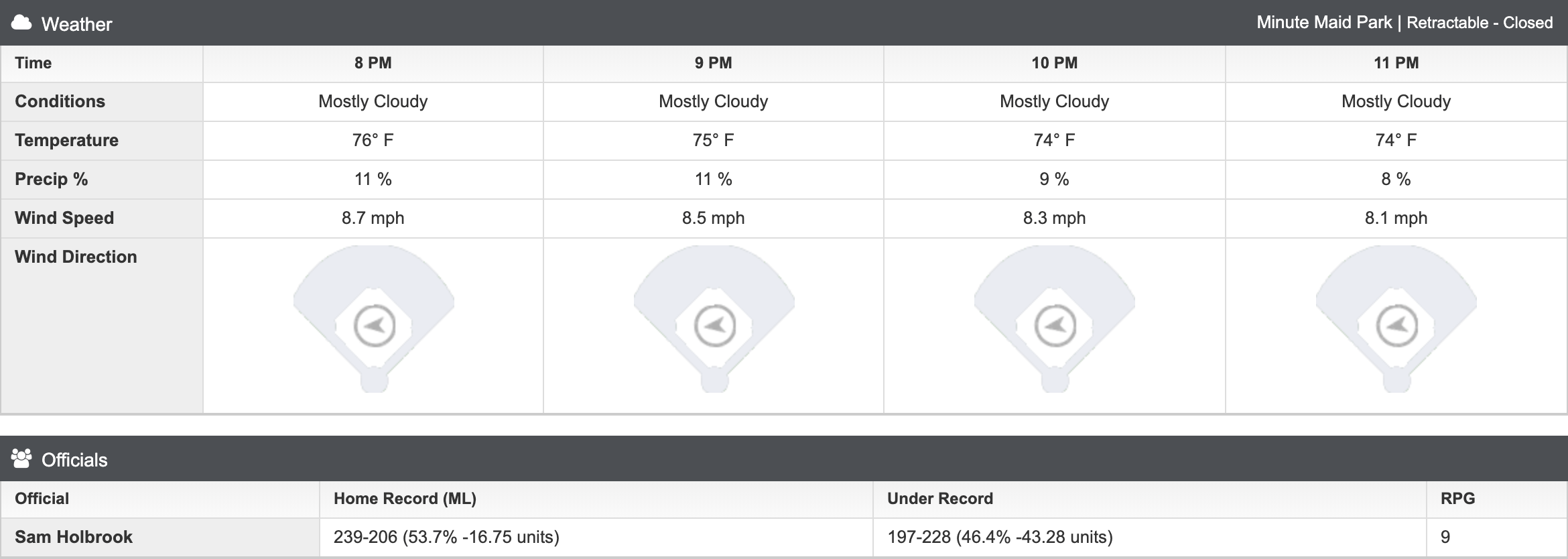
The last time that the Astros played a playoff game at home with the roof open was in 2005, and the dome will be closed again on Tuesday night.
Minute Maid Park is the second-most profitable park for unders in our database at 629-555-58 (53.1%), generating +$4,599 for a consistent $100 bettor.
Sam Holbrook will be the home plate umpire for Game 6. He was also the plate umpire in Game 7 of the 2016 World Series.
Both pitchers are likely pleased with the assignment.
Per Mark Simon of The Athletic, Strasburg has a 0.90 ERA in 40 regular-season innings (43 K, 7 BB) while Verlander has a 2.33 ERA, including two starts this season (14 IP, 1 R, 17 K) with Holbrook behind the plate.
Since 2005 Holbrook is the third-most profitable umpire for overs, which have hit at a 53.9% clip (229-196-20) — generating +$2,367 for a consistent $100 bettor.
Trends to Know
The American League owns a 66-48 head-to-head record against the National League in the World Series.
Stephen Strasburg is now 16-11 (59.2%) as a moneyline underdog and 17-6-7 (73.9%) as an F5 underdog.
Strasburg closed as a +164 moneyline underdog in Game 2, the biggest underdog moneyline of his career, surpassing a listing at +155 in a June 2017 start against Clayton Kershaw.
Justin Verlander is 0-5 in six World Series starts, with a 5.73 ERA and seven home runs allowed in 33 innings. He is 14-5 in all other postseason starts.
The under is 15-14 in those 29 postseason starts.
Series Moneyline Corner
Up 3-2 in the World Series, and anticipating that Scherzer and Corbin would pitch for the Nationals in Game 7, I set Houston as a -488 (implied 83%) series favorite.
Oddsmakers re-opened the Astros as a -800 (implied 88.9%) favorite, with the Nationals listed as a +600 (implied 14.3%) underdog, representing a 2.7% edge in expected value on Washington compared to my projection (+488, implied 17%).
However, with a +155 moneyline for Game 6 and a series price of +600, the Nationals implied moneyline odds for Game 7 are roughly +175.
I view their fair odds, with Corbin and Scherzer facing Greinke, closer to a coinflip than +175 in Game 7, and anticipate that the market would too.
Therefore, I think that the Nats series price (+600 or better) is the most viable betting option if you believe that they win Game 6, and would play it to +575.
If the Nats win Game 6, and you can hedge with the Astros in Game 7 at a price better than -175, you would turn a more significant profit than betting the Nats Game 6 moneyline alone. Or, you could ride a +600 ticket in the deciding game.
I risked a half unit on the Nationals series price at +600, rather than playing their Game 6 moneyline.
Model Projected Odds: World Series Game 6
Favorite Bets
I projected the Astros as a -147 favorite in this game, and I set the total at 7.16 runs. Therefore, I see a small amount of value on the Nationals moneyline, but no value on the total.
At listed moneyline odds of +155 (implied 39.2%), I see a 1.3% gap in expected value from my projection at +147 (implied 40.5%).
I would consider the Nationals moneyline down to +170 (implied 37%), a 3.5% gap in expected value. But as I mentioned above, their series moneyline likely offers more substantial value if you expect the Nats to force a Game 7.
My preference is to play the Nats on the F5 moneyline, and I set the cutoff price at +150 (implied 40%) — which represents a 2.6% gap in expected value from my projection (+135, implied 42.6%).
I put a half unit on the Nationals' F5 moneyline at +155 and also played their F5 spread (+0.5, -105), which I like to -110, for an additional half unit.
[In New Jersey? Bet now at PointsBet]


